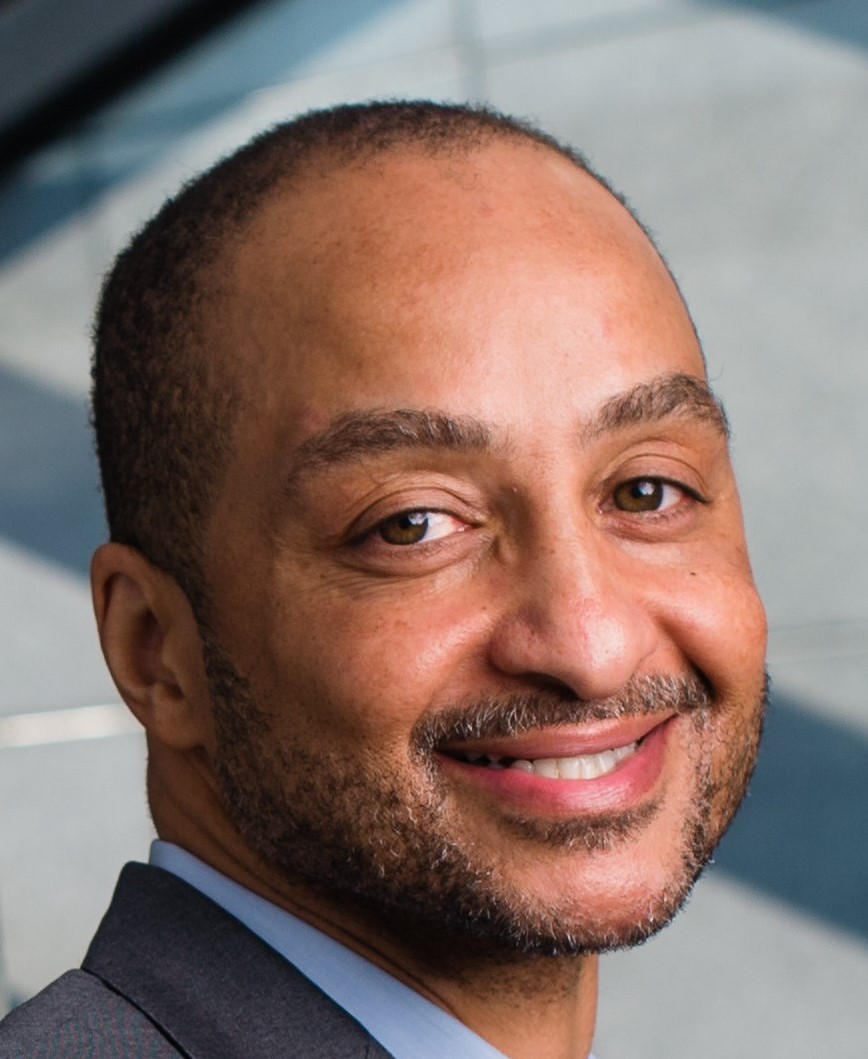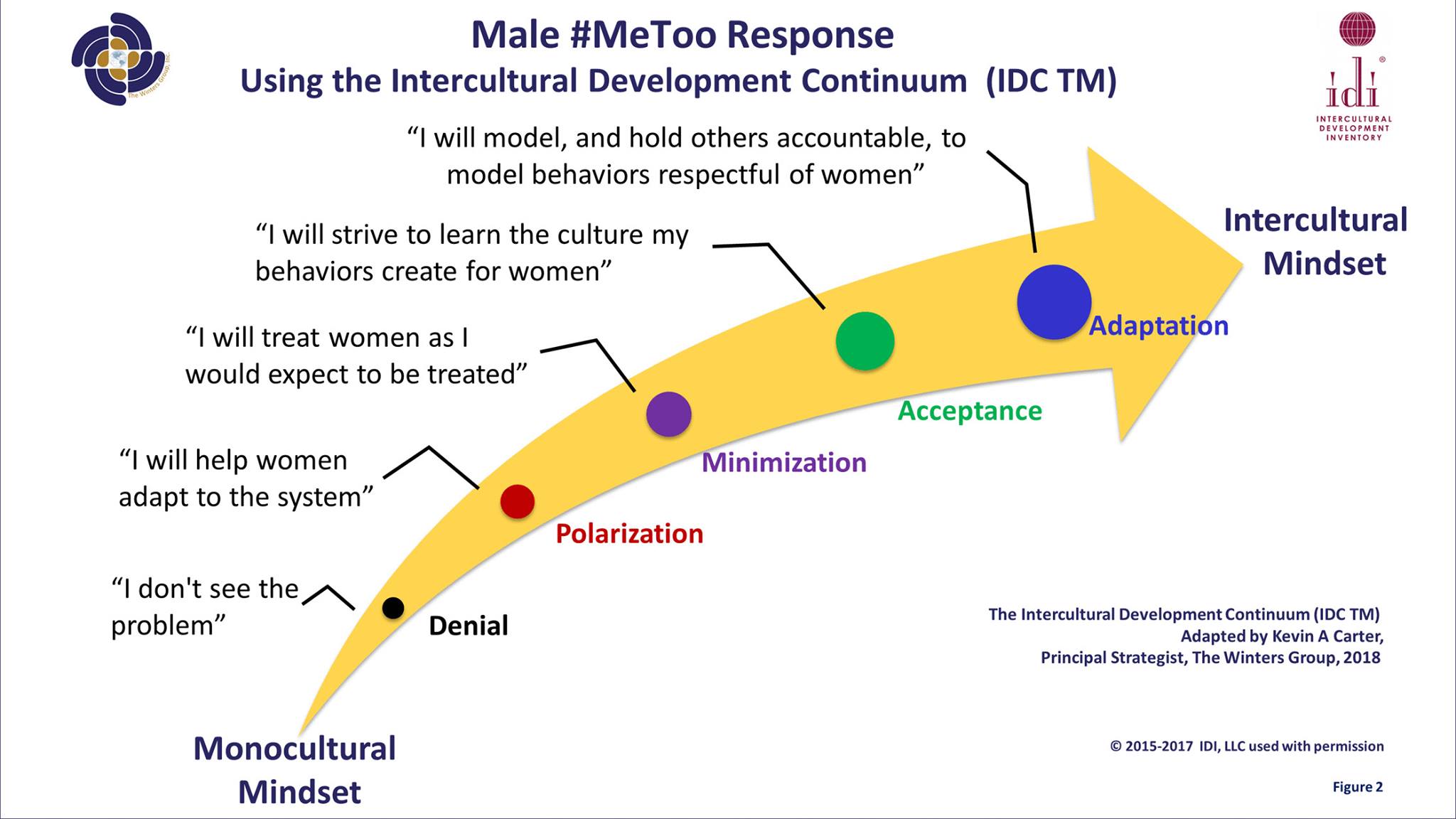The PBS series #MeToo Now What? sparked significant conversation within The Winters Group, so much so that we developed blog posts and virtual learning labs to expand the dialogue. This blog post is a reaction to Episode 3, “Masculinity in Crisis,” a conversation with panelists radio host and media personality John Fugelsang, author of Invisible Man, Got the Whole World Watching Mychal Denzel Smith, and sociologist Dr. Michael Kimmel.
“Masculinity in Crisis” was powerful and moving in its depiction of the pain and harmful effects of male sexist behavior. Fugelsang made a poignant point about the way we as a society sexualize and fetishize women’s bodies. Denzel Smith argued that the bar has been set too low for men, and Dr. Kimmel affirmed his argument and offered that this movement is ultimately about autonomy and agency rather than just consent.
To get deeper into these discussions, I asked other men to view the episode and share their reactions. Their responses were thoughtful and emotional. A few believed the male guests were just pandering to the host rather than bringing up any sort of counter points. Another said, “I am not going to get involved because I feel like the burden is all on me, a man, to fix the situation. Women are not owning up to their role as mothers and sisters in socializing their sons and brothers to act the way they do and actually supporting gender bias.” Another said, “Women objectify other woman, and objectify men – are we going to discuss that issue? I feel that if I have not been perfect in all my past behaviors towards women, I should be ‘flushed out,’ ” as stated by a woman interviewed for the episode, “so I am hesitant to step out.”
My response to these men was “I appreciate your perspective and respect your feelings. To some degree, I share them. However, don’t you think men should want to fix the situation simply because it is the right thing to do, but because it empowers women AND men. Moreover, given that men are disproportionately in charge of organizational policies, practices and procedures, don’t men have a higher responsibility and obligation to fix the system?”
Their response was, “Absolutely, we do, and will, but let’s have an honest and candid dialogue with women to begin the process.”
My conversations with these men inspired me to find a way to set the table, or to establish tenets for a two-way conversation between men and women on eliminating sexual harassment and fostering empowering work environments for women. To begin the process, I am recommending that men and women enter into a period of self-examination, using models and approaches that challenge men to reflect on and change their behavior towards women and that ask women to reflect on their mindset and behavior in engaging men who want to work with women to create work environments that empower women.
The first model is based on LIFO®, or Life Orientations. The LIFO philosophy and survey helps individuals to align intent, behavior and impact (IBI) [1], and to seek balance in the use of their behavioral strengths. The philosophy stresses that “Intention-Behavior-Impact analysis should include feedback from others. What one believes about one’s impact compared with what impact others experience can lead to remarkable insight and target one’s plan for self-improvement and greater effectiveness.”[2]
In giving that feedback, I am suggesting that women conduct self-reflection and consider any biases or misconceptions they may have about men. Women will say that they are not looking for perfection but that they are just looking for consistent, and committed, effort in understanding and supporting the #MeToo movement. From listening to the men I spoke with, they feel that perfection may still be an expectation. They expressed that the line between friendly, flirting and harassing behavior has become thin, and that it has been drawn without any consideration of the times in which past behavior took place. These men clearly understand that some behavior such as “pats on the butt,” “sexual innuendo,” “quid pro quo” and rape are wrong during any time period.
The purpose of Men Seeking #MeToo Excellence: Gaining Congruence chart below is that men and women be clear with each other on the intent, behavior, and impact (IBI) that fosters women empowerment and work together to reach this vision.
The chart is an attempt at what Professor Kimmel is suggesting when he says, “I don’t think we make a choice between prevention of and retribution for behaviors. I think both are important.” I am recommending that men and women have an honest conversation about what preventive and retributive practices, policies and procedures look like in the workplace.
With this discussion as a basis, I believe it is fair, and essential, to expect men to tirelessly work to understand their behaviors, how those behaviors impact women and foster — with women — respectful and empowering work environments.
The Male #MeToo Response model (figure 2) leverages The Intercultural Development Continuum (IDC TM). The IDC identifies one’s reaction to cultural commonalities and similarities along a spectrum of Denial to Adaptation. I introduce this model to help men and women reflect on their reaction to the #MeToo movement and adopt appropriate practices, policies and procedures to prevent sexual harassment and foster female empowerment.

More than one-half a million individuals have taken The Intercultural Development Inventory® (IDI®), an assessment tool that measures one’s stage along the IDC. Of those individuals, 2-3% are at a stage of Denial regarding cultural commonalities and differences. If I can apply this percentage to the cultural issue of gender, I would hypothesize that very few men believe that gender differences do not exist and are not significant. Men factor gender into their behavior. #MeToo is highlighting that male behaviors are socialized, and many times flawed, and harmful towards women. I offer that a Denial cultural response to the #MeToo movement would look like men saying they don’t see a problem, or possibly avoiding, or talking about avoiding, women.
More men, maybe roughly 13 – 14%, may find themselves at a stage of Polarization, where the thought of the #MeToo movement, or women’s empowerment, motivates them to either not change their behavior because they see nothing wrong with it, or to aid women in adapting to the existing, male, cultural norms in the workplace. While this mindset might be viewed as progress from denial, it is a mindset that maintains the status-quo, is paternal, and does not involve a significant change or adaptation in male behavior towards women. It is a mindset that is not attempting to respect the female agency and autonomy that Professor Kimmel recommends as a benchmark.
Even more men, maybe as many as 65 – 70% if the IDI assessment results can serve as a guide, might view themselves as feminists, or #MeToo champions because they treat women as they themselves would want to be treated. This Minimization treatment is the “golden rule.” At this stage, a man may profess: “I don’t see gender, I just see people, and I treat all people with respect.” However, women are different than men in significant ways, and thus, to treat women as if they were men, or as if gender does not play a role in the workplace, would be to ignore, or devalue an essential portion of female humanity, and result in workplace cultures not truly empowering for women.
To move from a stage of Minimization to Acceptance in the #MeToo movement, men must ask themselves questions such as: What about me, and my behaviors, prevent women from reaching their full potential; How do my behaviors foster a culture that disrespects women and limits their opportunities? Men must ask women these questions, and listen respectfully, reflectively, empathetically and constructively to their responses. Maybe 13-14% of men are at this stage. It is the stage depicted in my LIFO model as: Align intent and impact by discussing what behavior(s) by me, and mindset by you, is modeling a partnership in creating work environments respectful of women and that empower women.”
After this discussion — with women — men can model the appropriate Adaptive behaviors. IDI assessments suggest that about 2-3% of people are at the Adaptation stage towards cultural commonalities and differences. At this stage, men effectively partner with women to model behaviors and adopt policies, practices and procedures that respect, empower and advance women. Again, they can do this because they are actively listening and learning from women.
So, what are some suggestions to help men improve their self-knowledge, knowledge of others and bridging skills. The Men Seeking #MeToo Excellence chart (figure 3) encourages men to reflect on their answers to questions such as: Who are my male and female role models? What are my models of masculinity, and how were they learned? What is my source of knowledge of women, and how do I foster gender knowledge? Am I a good listener, observer and communicator on the issues of female respect, engagement and empowerment?

After this self-examination, men can determine what attributes they will model, what obstacles they will overcome and what actions they will take in fostering work environments that respect, inspire and empower women (figure 4).

As part of this advocacy, men will connect the empowerment of women to business success, “own up” to their prior mistakes, overcome fears of rejection by other men, discuss any discomfort they have with championing women with women, and develop and promote “future state” stories.
As I stated at the beginning of this blog post, I believe men should proactively address sexual harassment in the workplace not only because it is the right thing to do, but also because it empowers women AND men. Moreover, given than men are disproportionately in charge of organizational policies, practices and procedures, men have a higher responsibility and obligation to fix the system.
Their efforts will also free them from the box, stress and straitjacket that traditional masculinity has placed on them.
[1] LIFO® – Life Orientations are proprietary service and trademarks of Business Consultant Network adapted by Kevin A. Carter, Principal Strategist, The Winters Group, 2018
[2] LIFO® Intention-Behavior-Impact. Its Unintended Impact. Stuart Atkins, PH.D. 2011 Page 2
Originally published at www.theinclusionsolution.me



